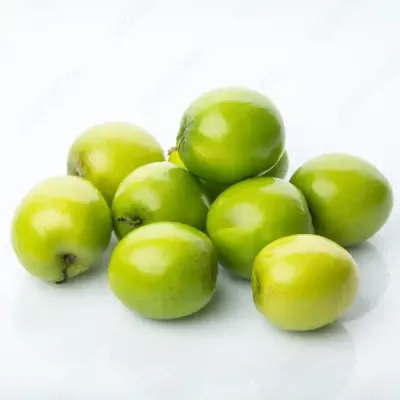



Ber Apple or Elathapazham as it is called in the southern staes of India, is a small to medium-sized tree native to the Indian subcontinent and Southeast Asia. The fruit is round to oblong-shaped, with a size of about 50 mm and a sweet-sour taste.

Pay using UPI, Card or Netbanking

Shipping within 3 working days
Rich in vitamin C, Ber apple, Indian jujube, or Elanthapazham all look like small apples. It is a small fruit with a round to oblong shape and a thin, glossy skin.
The tree is also known as Indian jujube and is frequently confused with jujube or red date.
The plant is generally devoid of pest issues and easy to grow. They require full sun. They can be grown in large pots.
Ber apple trees have a vigorously growing tap root and sturdy root system. They are drought-tolerant to some extent when planted on the ground. However, when potted, regular watering is needed. Water logging is to be avoided.
It is a medium-sized tree, reaching about 10 metres in height but often being shorter than that. It can be kept shorter through pruning. The tree often takes the shape of a large bush as it branches out from the very base. The tree has ornamental value and is used for landscaping purposes.
Indian jujube plants fruit during the winter, though some varieties fruit several times in a year.
These berries may be eaten fully ripe or slightly underripe. The fruits have a crisp, astringent flavor. Ber apples are typically eaten raw or lightly salted. They are high in flavonoids, which help promote blood circulation and stimulate digestion.
Data sheet